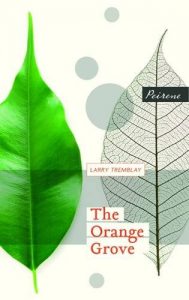Published by Peirene Press May 2017
144pp, paperback, £12.00
Reviewed by Alison Burns
Imagine a village, in a war zone. It could be anywhere. Imagine a family, caught up in a civil war. The father, Zahed, tends his orange grove. The mother, Tamara, raises their two sons: Ahmed and Aziz (who has a terminal illness). One day, a bomb from the other side of the mountains kills both grandparents. A man comes from the neighbouring village, talking of revenge: Zahed must sacrifice one of his sons, to punish the enemy.
This tender, poetic, shocking story has at its heart both horror and transcendent gentleness. The two boys conspire with their mother to trick their father, who has selected healthy Ahmed as the truer sacrifice. Instead, it is sickly Aziz who straps on the suicide belt and goes to his destruction.
How is it possible for children to make such a pact, you may ask? Love, for one thing; courage, curiosity. These boys have no adult understanding of their predicament – no proper grasp of the meaning of blowing yourself up, or of going to heaven – but they can imagine. They also recognize the emergency. They discuss this in great detail, and are resolute. Yet they cannot control the outcome.
Years later, when Ahmed (who now calls himself Aziz) is working on the graduation show at the end of his four years of theatre training in America (it is a play about a child at the mercy of an enemy soldier), his secret sorrow bursts out. He experiences a breakdown of sorts, as he recalls the glorification of his brother and the shameful aftermath. His teacher, who has written the play, feels he has failed him. Then, in a stunningly theatrical denouement, Ahmed/Aziz appears, speaking to the audience on behalf of all children of war.
Montreal-based author Larry Tremblay is a theatre director and actor as well as a novelist and short-story writer whose work has been shortlisted for many international awards. In this fine translation from the French by Sheila Fischman, his writing stands comparison with that of Amos Oz, whose sensitivity to the effects of war on individuals has distinguished similar questioning texts.
Tremblay packs into a small number of pages the feelings of multitudes. It is one of the strongest arguments for peace that this reviewer has seen.

